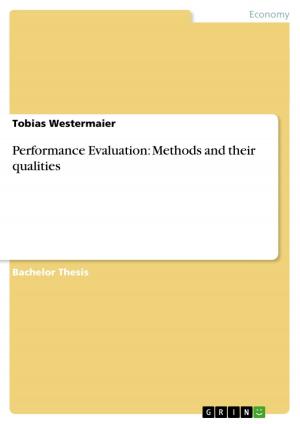Moral Stage - A literature overview
A literature overview
Nonfiction, Health & Well Being, Psychology, Developmental Psychology| Author: | Arnold Ackerer | ISBN: | 9783638254601 |
| Publisher: | GRIN Publishing | Publication: | February 17, 2004 |
| Imprint: | GRIN Publishing | Language: | English |
| Author: | Arnold Ackerer |
| ISBN: | 9783638254601 |
| Publisher: | GRIN Publishing |
| Publication: | February 17, 2004 |
| Imprint: | GRIN Publishing |
| Language: | English |
Seminar paper from the year 1998 in the subject Psychology - Developmental Psychology, grade: very good, Hendrix College (Department for Social Psychology), course: Independent Study, 34 entries in the bibliography, language: English, abstract: This paper is a comprehensive review of psychological literature concerning the issue of morality in psychological research. Though the emphasis is on psychological constructs the first chapter offers philosophical and sociological views on morality. In the second chapter Kohlberg's stage sequence theory is explained from its origins in Piaget's work to various criticisms of the theory. The second chapter also provides extensive information about measurement and the different approaches popular in psychological literature. The last part in the second chapter links other constructs like socioeconomic status, grade point average, collectivism, and psychoticism to moral reasoning. The third chapter concludes the paper with a review of the most important thoughts on morality and states the need for further research in special areas.
Seminar paper from the year 1998 in the subject Psychology - Developmental Psychology, grade: very good, Hendrix College (Department for Social Psychology), course: Independent Study, 34 entries in the bibliography, language: English, abstract: This paper is a comprehensive review of psychological literature concerning the issue of morality in psychological research. Though the emphasis is on psychological constructs the first chapter offers philosophical and sociological views on morality. In the second chapter Kohlberg's stage sequence theory is explained from its origins in Piaget's work to various criticisms of the theory. The second chapter also provides extensive information about measurement and the different approaches popular in psychological literature. The last part in the second chapter links other constructs like socioeconomic status, grade point average, collectivism, and psychoticism to moral reasoning. The third chapter concludes the paper with a review of the most important thoughts on morality and states the need for further research in special areas.















